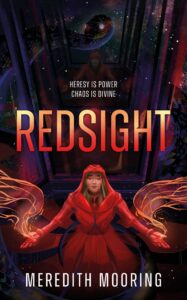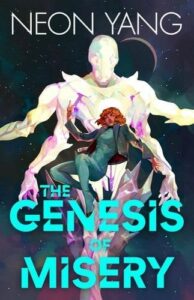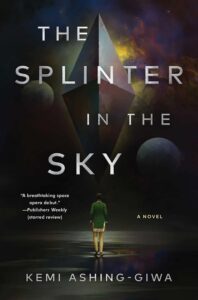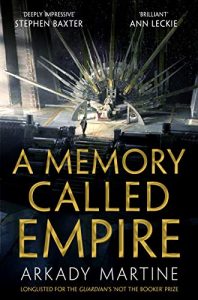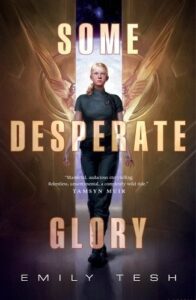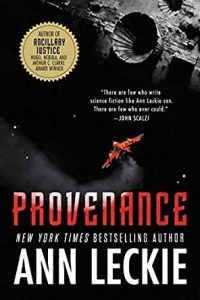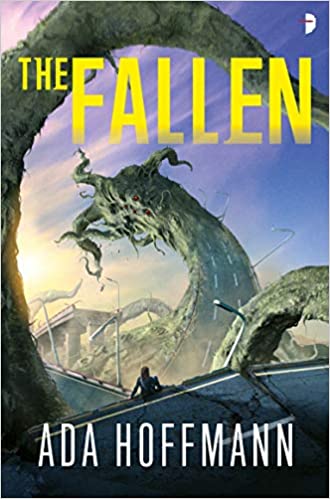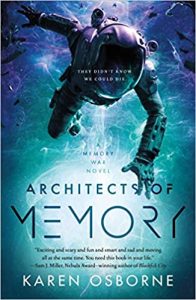Buy this from Bookshop.org to support local bookstores and the Lesbrary!
Better buckle up your buttered biscuits, because you’re in for one hell of a ride.
Meredith Mooring’s debut novel Redsight, freshly published February 27, 2024, arrived studded with blurbs. The two that ultimately pulled me were: “The heretical, genre-defying daughter of Killing Eve and Dune,” (Kemi Ashing-Giwa) and “A stellar debut, born from a collision between epic space opera and bewitching cosmic space horror” (Ren Hutchings). Sign me up.
Fresh from having devoured all 394 pages in a single sitting, I have to agree with the comparisons.
Our chosen one, Korinna, is a red witch thrust into the heart of an intergalactic conflict she doesn’t understand, haunted by the bloody memory of a massacre and her own complicity. Like all Redseer clerics, she relies on tactus—the tactile energy of all things—to sense her world, rather than sight. She’s raised with the knowledge drilled into her that she is the weakest of her cohort, fit only for duty in the ship’s gardens. Certainly not strong enough to navigate a ship, let alone a massive Imperium warship.
When Korinna’s path intersects with the buff and mysterious pirate captain Aster Haran, Korinna can’t deny her attraction to the other woman. As the stakes grow ever higher, Korinna has a choice to make: loyalty to her Order and the only life she’s ever known… or cutting a destructive swathe of vengeance across the universe beside a gorgeous outlaw with an ever-expanding array of secrets.
Redsight is action-packed, occasionally to the detriment of its characters, who have a slightly unfinished quality. They easily accommodate belief-shattering concepts, reconciling multifaceted issues within the space of a single conversation. Maybe I’m a sadist, but I wanted to witness their internal struggles play out longer.
There is so much to love about this book and the sweeping universe Mooring created. There were passages that left me breathless, ravenous to know the outcome. Mooring has a talent for channeling visceral physical trauma, so there were other passages that had me gritting my teeth and begging for my favorites to just please, please make it through.
Redsight also has one of the more unique magic systems I’ve read in awhile—and I do so love an epic mythos. You can never give me enough goddesses in locked tombs, and you can never give me enough queer space pirates and acolytes. Bring on the apostasy, baby.
However: a word of warning for my queasy friends re: Mooring’s gift for transcribing bodily harm. The blood, y’all. There’s so much blood, all the time. It is immensely disconcerting and I’m used to gore. Honestly, it’s impressive.
Redsight might be one of my new favorites. Not because it’s perfect, but because it gets so much right. Mooring offers truth and a way forward. She offers a sense of hope and belonging for perpetual outsiders. Despite the heavy content, there are glittering threads of optimism woven throughout. I wouldn’t call it a feel-good, but… the novel is a deliciously weird and delightful treat, and I’m going to be thinking about it for a long time. If you’re a fan of powerful queers in space, you’re going to enjoy Redsight.
Content warnings: blood, violence, gore, low self esteem, dubious consent (taking power)

